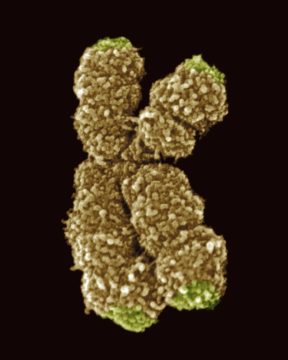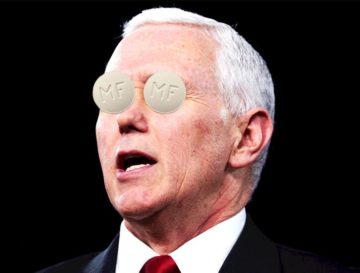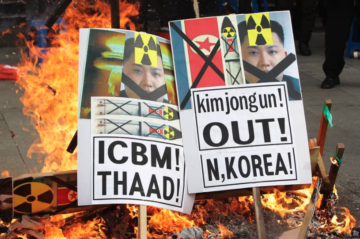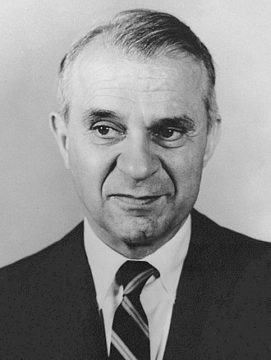Rick Moody at Salmagundi:

It’s easy, when reading Ross Douthat, with his talk of a “tribe” of meritocrats and culture workers, with his feel-good conservative Catholicism, to know what you are against spiritually. Being against things is at the heart of Douthat’s article. It’s at the heart of certain kinds of evangelical practice, it’s at the heart of the ideologically pure Left and the ideologically pure Right. What’s much harder, especially in the Christianity of the present, is to say what you stand for, even if standing “for” things is theologically central to all that Christianity imagined of itself, when, e.g., it codified the Nicene Creed.
Let me, then, say what I imagine liberal Protestantism, e.g., stands for. In my daily reading of the work of Franciscan contemplative Richard Rohr I recently came across the following from Julian of Norwich, a profound early English mystical voice, and a writer much admired by Rohr and other contemporary thinkers about Christian theology: “Would you like to know our Lord’s meaning in all this? Know it well: love was his meaning. Who revealed this to you? Love. What did he reveal to you? Love. Why did he reveal it to you? For love. Stay with this and you will know more of the same.”
more here.

 The story, as often happens in science, sounded so appealing. Cells have a molecular clock that determines how long they live. If you can just stop the clock, cells can live indefinitely. And the same should go for people, who are, after all, made from cells. Stop the cell clocks and you can remain youthful.
The story, as often happens in science, sounded so appealing. Cells have a molecular clock that determines how long they live. If you can just stop the clock, cells can live indefinitely. And the same should go for people, who are, after all, made from cells. Stop the cell clocks and you can remain youthful. From December 31, 1957 until December 31, 1967, the artist and writer Henry Darger (1892–1973) kept a series of six ring-binder notebooks with almost daily entries on the weather in his native Chicago. On the outside cover of the first book, Darger describes the project, with encyclopedic enthusiasm, as a “book of weather reports on temperatures, fair cloudy to clear skies, snow, rain, or summer storms, and winter snows and big blizzards—also the low temperatures of severe cold waves and hot spells of summer.”
From December 31, 1957 until December 31, 1967, the artist and writer Henry Darger (1892–1973) kept a series of six ring-binder notebooks with almost daily entries on the weather in his native Chicago. On the outside cover of the first book, Darger describes the project, with encyclopedic enthusiasm, as a “book of weather reports on temperatures, fair cloudy to clear skies, snow, rain, or summer storms, and winter snows and big blizzards—also the low temperatures of severe cold waves and hot spells of summer.” For the first six weeks I can’t walk further than a few hundred metres. I feel like I’m practicing a walking meditation without experiencing the mental effects of this exercise – to focus on one activity, to centre myself. I’ve just had a baby; I am profoundly de-centred. In my current state, I can’t push the pram, or wear my new baby on my body, or drive a car. When I lie down at night, it feels like all my organs will spill onto the bed. Other fluids seep out – milk, tears. My body produces these things, and I cannot control them. I had not planned for the baby to exit my body in the way that she did, and for some reason this causes me more pain than the scar that now bisects my abdomen.
For the first six weeks I can’t walk further than a few hundred metres. I feel like I’m practicing a walking meditation without experiencing the mental effects of this exercise – to focus on one activity, to centre myself. I’ve just had a baby; I am profoundly de-centred. In my current state, I can’t push the pram, or wear my new baby on my body, or drive a car. When I lie down at night, it feels like all my organs will spill onto the bed. Other fluids seep out – milk, tears. My body produces these things, and I cannot control them. I had not planned for the baby to exit my body in the way that she did, and for some reason this causes me more pain than the scar that now bisects my abdomen. In 1991 an academic debate spilled out of ivory towers and into the popular imagination. That year, Serge Renaud, a celebrated and charismatic alcohol researcher at the French National Institute for Health and Medical Research—who also hailed from a
In 1991 an academic debate spilled out of ivory towers and into the popular imagination. That year, Serge Renaud, a celebrated and charismatic alcohol researcher at the French National Institute for Health and Medical Research—who also hailed from a  Wearing the white robes that are used to dress the dead in Japan, I bow my head deeply as drums are beaten and conch shells are blown – reminders that the first rite of my yamabushi ascetic training is beginning. My funeral is starting. Along with a small group of uninitiated who are also preparing to ‘die’, I start a symbolic pilgrimage into the afterlife, descending the slopes of Mount Haguro, a cedar-covered mountain in Japan’s northern Yamagata Prefecture.
Wearing the white robes that are used to dress the dead in Japan, I bow my head deeply as drums are beaten and conch shells are blown – reminders that the first rite of my yamabushi ascetic training is beginning. My funeral is starting. Along with a small group of uninitiated who are also preparing to ‘die’, I start a symbolic pilgrimage into the afterlife, descending the slopes of Mount Haguro, a cedar-covered mountain in Japan’s northern Yamagata Prefecture. In the summer of 2021, Canada’s all-time temperature record was smashed by almost 5℃. Its new record of 49.6℃ is hotter than anything ever recorded in Spain, Turkey or indeed anywhere in Europe.
In the summer of 2021, Canada’s all-time temperature record was smashed by almost 5℃. Its new record of 49.6℃ is hotter than anything ever recorded in Spain, Turkey or indeed anywhere in Europe. IT WAS HIGH TIME
IT WAS HIGH TIME Kent Puckett in Public Books:
Kent Puckett in Public Books: Tim Sahay and Kate Mackenzie in Polycrisis:
Tim Sahay and Kate Mackenzie in Polycrisis: Yakov Feygin in Building a Ruin:
Yakov Feygin in Building a Ruin: A member of the pea family, M. pudica is a small plant with tiny leaflets paired along the length of each stem and pretty lavender-pink globular flowers. The leaves give it a fernlike, feminine look, although it is also armed with thorns to ward off attacks. It’s native to Central and South America but has spread throughout the tropics partly because of its popularity as a novel ornamental that exhibits a fascinating behavior: if you touch a single leaf, the plant will swiftly fold up all its leaves before your eyes. Only a soft touch is required to bring on this collapse; after a while, you can also watch as the wilted-appearing mimosa sets about righting itself and reopening its leaves. You may have discovered the mimosa’s animal-like trick in an arboretum or store where the plants are sometimes displayed or sold. The rapid response to being touched is another defensive tactic—it startles most insects, as it does naive humans.
A member of the pea family, M. pudica is a small plant with tiny leaflets paired along the length of each stem and pretty lavender-pink globular flowers. The leaves give it a fernlike, feminine look, although it is also armed with thorns to ward off attacks. It’s native to Central and South America but has spread throughout the tropics partly because of its popularity as a novel ornamental that exhibits a fascinating behavior: if you touch a single leaf, the plant will swiftly fold up all its leaves before your eyes. Only a soft touch is required to bring on this collapse; after a while, you can also watch as the wilted-appearing mimosa sets about righting itself and reopening its leaves. You may have discovered the mimosa’s animal-like trick in an arboretum or store where the plants are sometimes displayed or sold. The rapid response to being touched is another defensive tactic—it startles most insects, as it does naive humans. Fatimah Asghar is the first recipient of the Carol Shields prize for fiction for their debut novel When We Were Sisters. The award was announced Thursday evening at Parnassus Books in Nashville, Tenn. They will receive $150,000 as well as a writing residency at Fogo Island Inn in Newfoundland and Labrador.
Fatimah Asghar is the first recipient of the Carol Shields prize for fiction for their debut novel When We Were Sisters. The award was announced Thursday evening at Parnassus Books in Nashville, Tenn. They will receive $150,000 as well as a writing residency at Fogo Island Inn in Newfoundland and Labrador. A
A